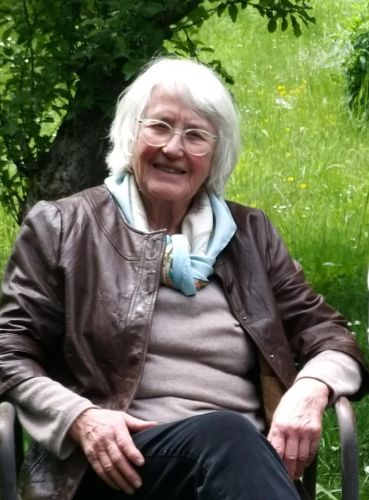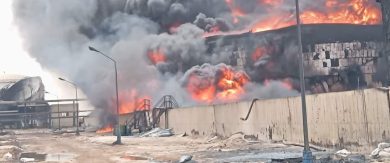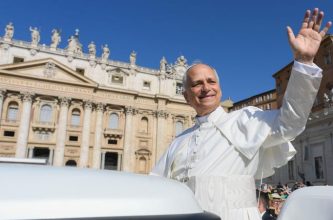By Hassan Humeida
Kiel, Germany
As Germany commemorates 35 years of unity since the historic fall of the Berlin Wall, AsiaN is publishing a special series of interviews with Germans who reflect on the country’s path to reunification. These accounts capture the experiences of individuals who witnessed the effects of breaking down barriers and opening doors to a shared future.
The reflections, marked by fairness and authenticity, highlight themes of dignity, resilience and hope. They move beyond surface narratives to offer deeper perspectives on the significance of reunification for Germany and for the world.
In keeping with its mission to present journalism grounded in shared humanity, AsiaN is committed to sharing these stories with readers across Asia and well beyond it.
Through these voices and their enduring messages, AsiaN seeks to remind the world that reconciliation, unity, and the bridging of divides are achievable ideals in today’s world.

Bridging East and West: A Personal Chronicle of Reunification and Hope
Interview with Almut Hentschel, 82 years old; Former lay judge and arbitrator; Rethen, (West) Germany
Almut Hentschel: After vocational training in the pharmaceutical field, a vocational high school diploma, and subsequent studies in social sciences, I received my diploma at the age of 45 and volunteered as a lay judge and arbitrator.
My own experiences as a young person before German reunification
I grew up in a small, agricultural village north of Hamburg. During that time, I had no connection to the East Germany-West Germany conflict. Even the construction of the Wall in 1962 passed unnoticed into everyday life.
My feelings during the German reunification process
Personal experiences: Since marrying a ‘refugee’ from the former German Democratic Republic (GDR) in 1966, I developed an understanding and great empathy for this issue.
My husband, Horst, was born in Breslau in 1940; his family and those of his relatives settled there and achieved professional success.
Expelled from Breslau by the Russians shortly before the end of the war, the families lived in cramped conditions in Weißenfels on the Saale River.
My husband’s father, through many roundabout means, obtained the address of one of his cousins from the West. For him, and with his wife’s consent, the idea of fleeing to the West was born.
My mother-in-law is said to have found it very difficult to leave her sisters and relatives behind.
The father had prepared the escape well. In the fall of 1947, he cycled from Weißenfels across the Harz Mountains to Hanover on a simple bicycle. There, he supported himself by selling nylon stockings. Nylon stockings were also highly sought after in the West and easy to transport on a bicycle. According to his stories, he received the goods from American soldiers.
On New Year’s Eve 1947, my husband, a seven-year-old boy, fled to the West with his mother on foot in the bitter cold, across the snow-covered Harz Mountains with the help of hired smugglers, past Russians patrolling the Elend-Braunlage border with machine guns. They had 50 marks at their disposal, and a bar of chocolate. The small family reunited in Hanover. From family stories, I learned that those who dared to flee to the West at that time were extremely lucky.
In the West, there was well-paid work and secure employment. And a slowly emerging prosperity. It is thanks to my father-in-law that the family ties to Weissenfels, Halle, and Leipzig were not lost.
In the years that followed, he regularly traveled by train to visit his relatives, always carrying highly sought-after groceries: coffee, chocolate, toiletries, and, time and again, nylon stockings.
Later, from the 1970s onward, my husband, our two children, and I regularly drove across the Magdeburg border crossing to Weißenfels with carefully declared gifts. We were always incredibly nervous about whether border guards would discover contraband in our car.
We once forgot to take our travel brochures for Italy out of the car. The consequence was that our car was completely gutted. I’m still proud of the idea of hiding wedding rings in a sponge cake and sending them to Weißenfels. When the first Trabbis (from the Trabant brand) passed us in 1989, the year of reunification, tears of joy streamed down my cheeks.
It occurred to me that prosperity was now also arriving in the East. But there was also another side to the coin. I remember that critical voices soon emerged from the western population. People felt disadvantaged in their everyday lives when looking for work, housing, and kindergarten places. Supposedly, only the money for reconstruction was flowing to the East.
For reunification in November 1989, we privately organized a family celebration for all families from East and West. The motto was: “The reunification of the Hentschel families, torn apart for decades.”
Unforgettable memories include the welcome money of 10 marks for each adult, a visit to McDonald’s, and the experience of a glittering Christmas market around Hanover’s Marktkirche, smelling of freshly roasted almonds.
How my life and my society have changed in the last three decades
Since the World Expo in 2000, the village where we have lived since 1972 has become a suburban catchment area. Every square meter is built on, the village has tripled in size, and infrastructure such as kindergartens, schools, vocational training, medical care, and transport volumes have grown along with this, but have also become more expensive.
The percentage of working women in West Germany has become much closer to that of working women in East Germany. The ‘typical housewife,’ a model from the Biedermeier era, has been relegated to a mere tuck in the back of the hat.
What I love about Germany as my home
The four seasons. Some time ago, I lived in a country where nature doesn’t know spring or autumn. I enjoy being amazed by the vibrant colors of nature in spring or strolling through colorful deciduous forests in autumn.
I like a certain punctuality and reliability. I highly value our democratic system. Large segments of the population can live almost carefree in this political and social structure. Even people in difficult circumstances are protected. Social security systems, social benefits, and basic living conditions are financed through taxes and social security contributions.
However, I also observe that a certain stagnation has crept in, that economic growth is stagnating. The momentum that began 30 years ago, which led to better economic and social development, seems to have slowed down.
My own perspectives on the lessons learned from German reunification for reunification
I wish that the people of North and South Korea could put down roots, following the example of the people of East and West Germany. The traditions that emerged from the family and have not been forgotten could be revived together. Children could ask their parents at the family table what life was like before the separation, or in the form of intercultural encounters, be it in sports, music, art, or even political discourse.
In a common language, in a single currency, in a shared recognition of their respective cultures, each shaped by their division. Not allowing ourselves to become alienated, but together, with the help of familial rather than clan-based ties from North and South, re-establishing a place of familiarity. This requires patience and a great deal of mutual respect.
What advantages I see for Korea and its future about a possible reunification of the Korean Peninsula
There could be a synergy effect in economic and social areas. Perhaps North Korea’s nuclear threat would also be eliminated.
The path to tolerant and respectful coexistence among people worldwide
In a tolerant society, skin color, gender, and religious affiliation should be honored and respected for all people worldwide. No one should ever fear persecution because of their way of life. For me, respect means respecting another person’s values, religion, or beliefs without prejudice. WORLDWIDE.
Peace and security in the world mean the following:
Global sustainable development that allows our Mother Earth to provide food for all people. Then societies can thrive in an environment free of conflict and violence. Societies can then thrive in such an environment without conflict and violence.




